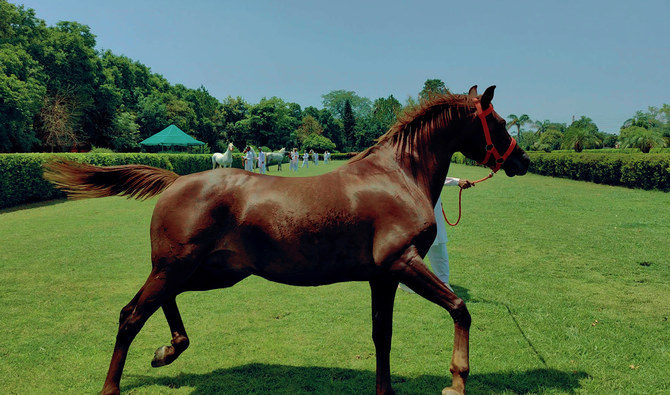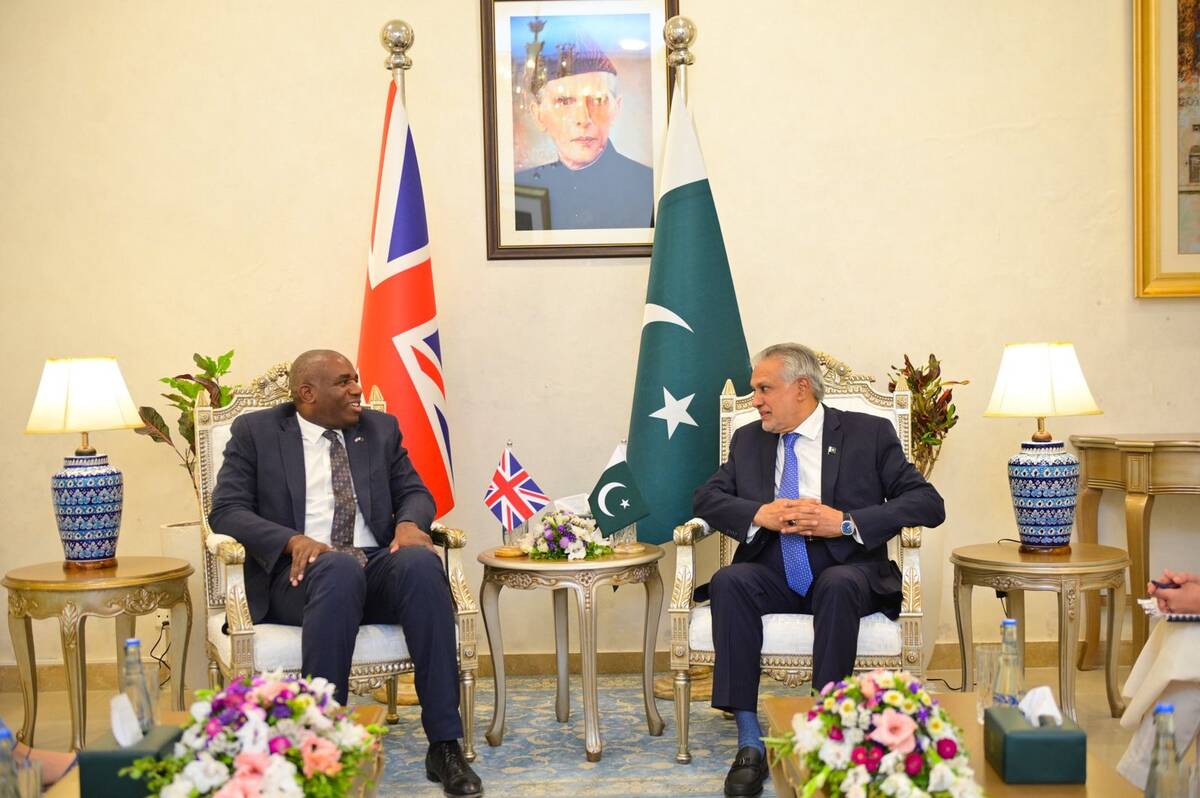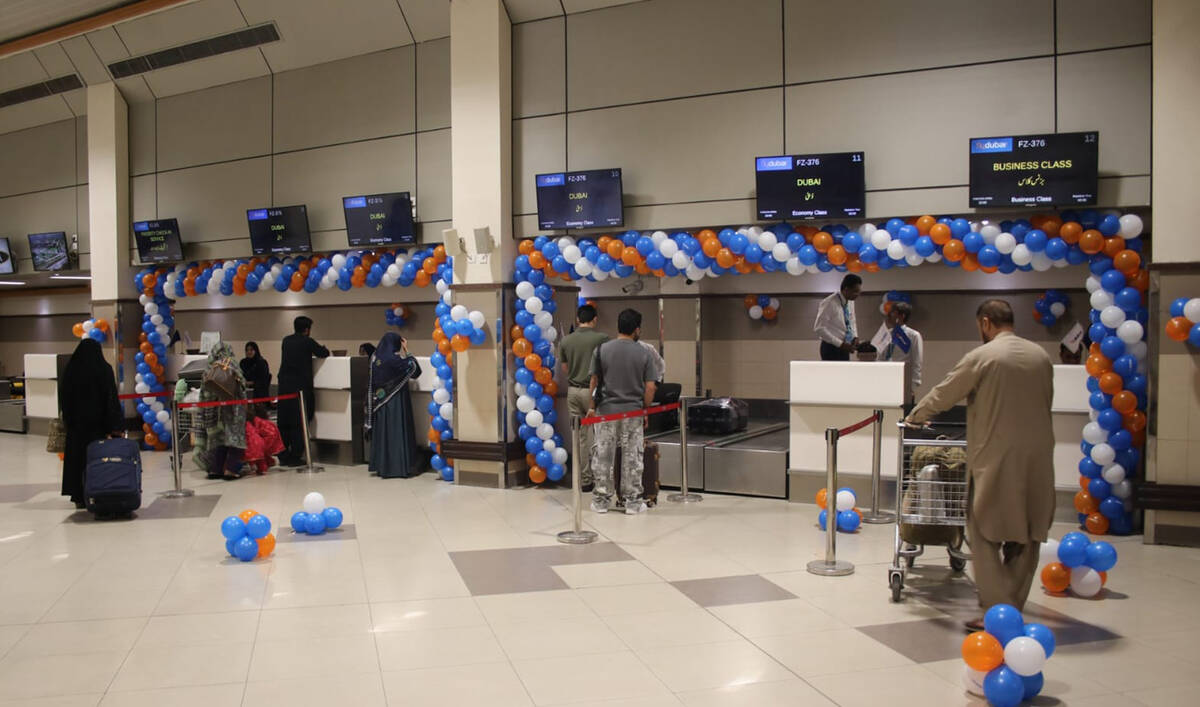MONA/MANDI BAHAUDDIN: With its long, arched neck, a refined wedge-shaped head and high tail carriage, the Arabian is one of the most easily recognizable horse breeds in the world. It is also one of the most ancient, with archaeological evidence available of horses in the Middle East that resemble modern Arabians dating back over 4,500 years.
In Pakistan, over 600 Arabians can be found at the Remount Depot Mona military facility located in Mandi Bahauddin, with the animals especially trained for equestrian games and dressage events.
Founded in 1902, the Depot is spread over 10,000 hectares of land, complete with roads, buildings, a canal and a train line, and serving as a hub for breeding and nurturing horses, donkeys and mules. Pakistan started importing Arabian horses almost 70 years ago, often placing them in competitions as prized show animals and keeping a pool as gifts for foreign dignitaries.
“Pakistan had 808 Arab horses which are registered with the World Arabian Horse Organisation (WAHO), out of which 627 animals are from Mona Depot while only 181 are from all over the country,” Brigadier Muhammad Naeem, the commandant of the Depot, told Arab News during a visit to the facility last week.
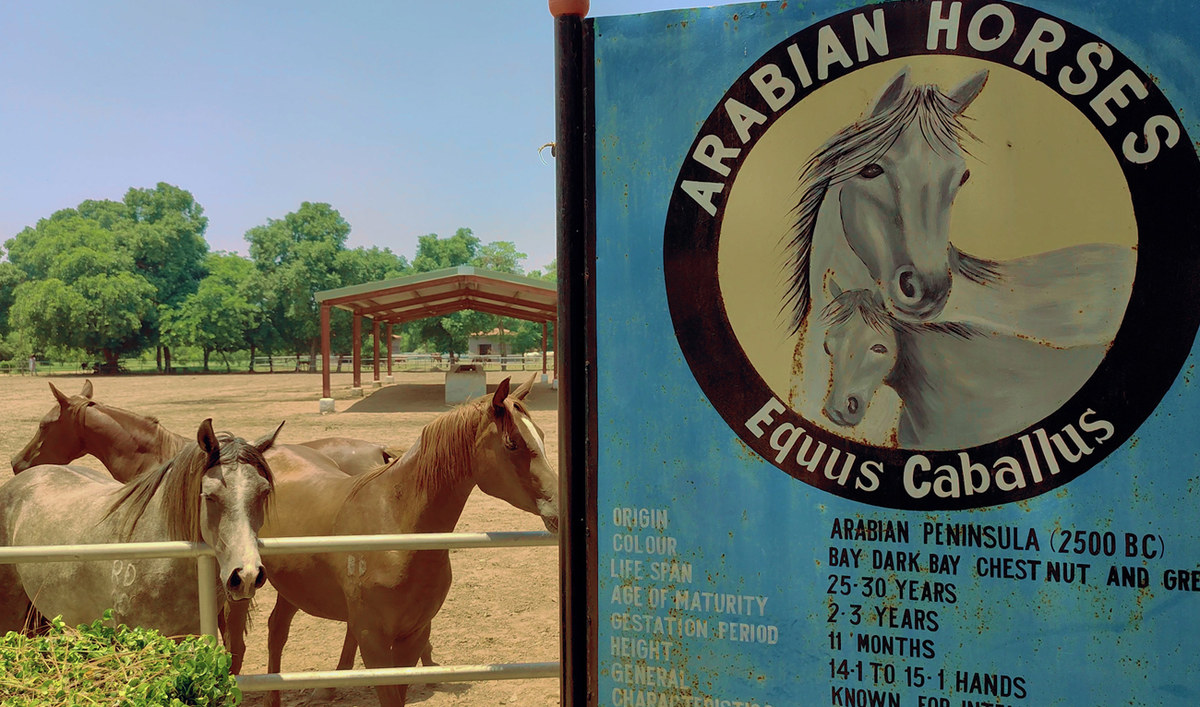
In this picture taken on May 27, 2023, a horse gallops at the Remount Depot Mona in Mandi Bahauddin, Punjab, which concentrates on the breeding of Arabian horses. (AN Photo)
WAHO, founded in 1970, is a UK-based charity with 82 affiliated countries that works to preserve pure Arabian bloodlines, promote breeding knowledge globally, coordinate member clubs, establish uniformity in breed terminology, and consult on other Arabian horse-related matters.
But what makes the Arab horses so special?
“In the known breeds of horses, the most ancient breed that is known is the Arabian horse which originated 2,500 BC from the Arab Peninsula,” Naeem said, adding that the animals were renowned for their “exceptional beauty,” particularly when they ran and raised their tails, showing off their “elegant form.”
Even though the precise origins of the Arabian are unknown, the breed is thought to have originated on the northern edge of the Syrian desert.
“They are widely recognized as one of the most famous horse breeds in the world."

In this picture taken on May 27, 2023, Arabian horses run at the Remount Depot Mona in Mandi Bahauddin, Punjab. (AN Photo)
Pakistan became a member of WAHO in 1997, with Mona Remount Depot its sole representative in the country. While horse breeding at the Depot began as a passion in 1956, the depot successfully turned to science in 2021 when it launched a test tube program.
“At our facility, we have successfully witnessed the birth of 15 test tube babies thus far, with an additional 12 pregnancies currently ongoing,” he said.
The first Arab horse at the Depot was imported in 1955 from the United States and 31 others after that from different countries.
“The price of an imported Arabian horse varies from $5,000 to $50,000, depending on the quality and pedigree of the animal,” Naeem said.
“The expenses for importing also vary depending on the country of origin and whether the animal is transported in a single cage or a group cage. From Gulf states, it costs around $10,000, while from Western countries and the United States, it can cost up to $20,000.”
At the Depot, the brigadier said, the cost of breeding, raising, and training an Arabian was "significantly lower due to locally produced fodder and other factors."
“The budget of the Depot is provided by the Ministry of Defense,” Naeem said.
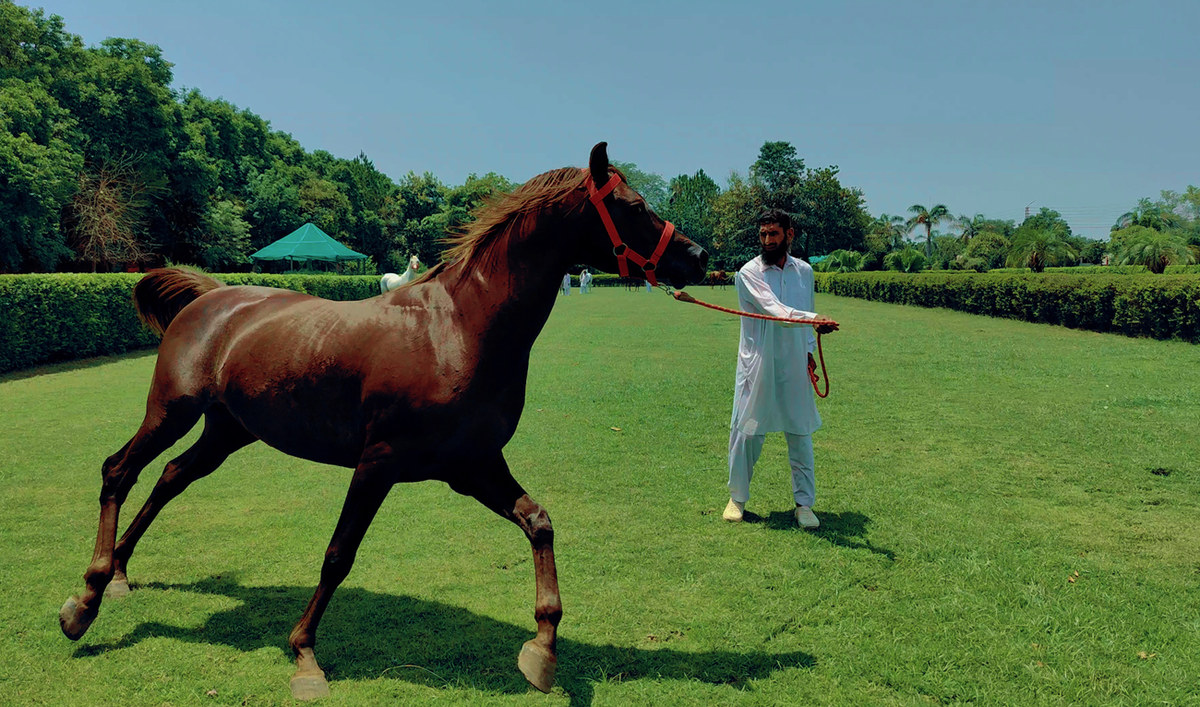
In this picture taken on May 27, 2023, the trainer holds an Arabian horse at the Remount Depot Mona in Mandi Bahauddin, Punjab. (AN Photo)
A pool of Arab horses, the brigadier said, was also kept to be presented as gifts by the Pakistan government and army to visiting dignitaries.
“36 animals have been presented [gifted] to different heads of states including Saudi Arabia, UAE, Qatar, Bangladesh, Sri Lanka, and some other countries,” Naeem said, while the King of Jordan, the ruler of Qatar, and the King of Saudi Arabia had gifted horses to Pakistani rulers also at different points in the last many decades.
“King Faisal gifted an Arabic horse to General Zia ul Haq and the Saudi King also gifted a horse to General Pervez Musharraf,” he said.
Gifts of horses to Pakistani rulers were always kept at Mona Depot, Naeem said.
According to experts, the Arabian is classified as a "hot-blooded" breed, with its sensitivity and intelligence enabling quick learning and greater communication with riders. This is why the breed is trained for equestrian games such as riding, dressage, polo, and tent pegging.
“We have horses specifically trained for show jumping and vaulting, which are used for various functions,” Naeem said.
One of Mona's Arabian horses has won the best polo pony prize in Pakistan six times, the brigadier added.
“These horses are highly responsive animals,” said Muhammad Rasaldar, a trainer at the facility who daily runs trainings with the animals that start at 6am and continue through the day. “The more love and attention they receive, the more attached and responsive they become.”
“We have a 39-week-long training course for them, during which we expose them to various environments to eliminate their fears ...They also receive training for different games throughout this course.”
Muhammad Akhtar, who trains the horses for polo, said the animals responded to every command.
“A horse is a very powerful animal,” he said, “and man can control it only by training it with a lot of love and compassion.”

In this picture taken on May 27, 2023, the trainer pulls an Arabian horse at the Remount Depot Mona in Mandi Bahauddin, Punjab. (AN Photo)


